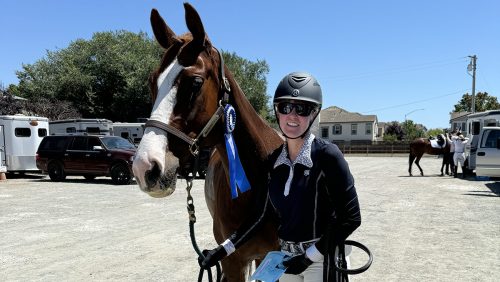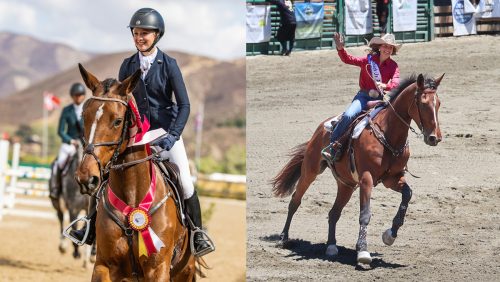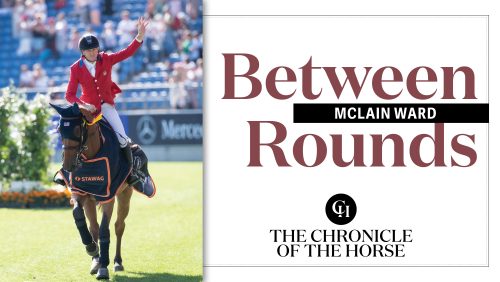The greater the pressure, the greater the tendency to choke.
So many athletes and performers feel a state of nervous anxiety, tension, fear of failure, and/or fear of injury in the hours or even days leading to the “moment of truth.” This affliction has many names: performance anxiety, stage fright, fight-or-flight response, pre-competition nerves.
From a scientific perspective, according to Wikipedia, “The acute stress response is a physiological reaction that occurs in response to a perceived harmful event, attack or threat to survival. It was first described by Walter Bradford Cannon. His theory states that animals react to threats with a general discharge of the sympathetic nervous system, priming the animal for fighting or fleeing. More specifically, the adrenal medulla produces a hormonal cascade that results in the secretions of catecholamines, especially morpinephrine and epinephrine.”
This is a highly technical way of explaining why some of us want to throw up or become almost comatose with anxiety or depression, and why for some riders, the thrill of actual competition is so overshadowed by pre-competition anxiety that it can drive them away from all competitive endeavors.
Most of us learn to cope, though many are never fully immune to the negative feelings of apprehension that scientists say are the result of thousands of years of evolution, honing our survival chances when we feel the threat of attack.
Years ago, I remember my U.S. Equestrian Team Three-Day Coach Jack Le Goff saying he was just as nervous before dressage as he was before cross-country, even though he knew dressage was physically safe and cross-country was physically dangerous.
“Your body can’t tell the difference,” Jack told us. “The reactions are the same, whether real physical fear or fear of failure; they both feel exactly alike.”
Performance anxiety can start early, in grade school. Can you remember that awful moment when your third grade teacher, stalking your classroom the way the saber-toothed tiger stalked our caveman ancestors in primordial jungles, sees you trying to be invisible behind your little desk and says, “Carol, take this chalk and go to the blackboard”?
Knees shaking, mouth dry, classmates tittering, you feel as if you are walking to the gallows instead of to the front of the classroom to answer questions about spelling or arithmetic.
Later, you may be sitting on your horse, outside the dressage arena, trying desperately to recall your test. “A, enter, working trot, sitting. X, halt, salute. C, track left…”
Your heart hammers in your chest. Your stomach is in knots. You trot numbly around the outside of the arena. The judge rings the little bell. The gates to hell yawn wide. You enter the abyss.
ADVERTISEMENT
Or, you toss and turn at 2:46 a.m., the morning of cross-country. Blessed sleep will not come. Over and over you ride your course, trying not to glance off the corner or refuse the ditch and wall.
Or you listen to loud applause as your rival, Felicity, finishes her perfect equitation round, nailing every distance and lead change. She flashes you a pitying smirk on her way past. Your hands are sweaty. Your horse skitters sideways. It’s your turn.
In Too Deep To Turn Back
I can vividly remember a similar moment in my eventing history from 43 years ago. In 1973, Neil Ayer hosted the first Ledyard International Three-Day Event in Wenham, Mass., to which he’d invited top European riders, in addition to the few advanced American riders of the era.
We’d done our first roads and tracks, Phase A, from Ledyard to Col. Appleton’s farm where we did Phase B, the steeplechase. Now I was riding Victor Dakin back to Ledyard on Phase C, the second roads and tracks, through the Myopia Country Club, up through Ed Hogan’s farm, to come to the 10-minute hold before Phase D, the huge, and for me, the first international level cross-country course either Victor or I had ever attempted.
As we trotted to the top of Ed’s farm, I heard a far distant roar of applause from the crowd as a rider negotiated some formidable fence like the Ledyard Coffin. Nervous fear flooded every pore of my body, but I was in too deep to back out now, so I just kept trotting forward.
In general, I think the degree of anxiety we feel before some competition or public performance tends to be in proportion to the degree of importance we attach to its successful conclusion.
If I go into show jumping at some event in 17th place, I tend to be a lot less nervous beforehand than if I’m in first place and need to go clean to win. There’s an old saying that as the importance of going clear grows greater, so grows the tendency of riders to “chase or choke their eye.”
In other words, if we are schooling in the safety of our home environment, out of public scrutiny, with no pressure to succeed, we can be good little Beezie and McLain “look-a-likes,” and nail our distances every time. Put us under pressure, though, and the “Cool Hand Luke” of the backyard arena turns into frantic and inept bumbling. Not always, but the greater the pressure, the greater the tendency to choke.
In 1992, I was in first place after cross-country at the Bromont CCI Three-Day (Quebec) on Epic Win. Bruce Davidson was in second place, and he had just completed his clear show jumping round. As I rode Epic into that former Olympic arena, 3 points in the lead, I heard the announcer intone, “And now entering the ring, our overnight leaders, Denny Emerson and Epic Win. And they can’t afford a rail.”
Thank you, Nigel Casserley, for pointing that out to me. Like I haven’t been aware of that since yesterday when I saw the scoreboard after cross-country?
ADVERTISEMENT
We did go clear and beat Bruce, which in those days was a hard thing to pull off, but I do remember the added pressure of very much wanting it to happen.
Not Alone
I do a sort of mini-blog on my Tamarack Hill Farm Facebook page, and in anticipation of writing this column, I asked for some insights from others.
I wrote, “I could use some insights for a Between Rounds column I’m writing for The Chronicle of the Horse. I’m discussing that annoying, sometimes gut-wrenching state that can afflict the very greenest to the most high and mighty, that dread of ‘impending battle’ that is called ‘performance anxiety,’ or ‘stage fright,’ or ‘pre-competition nerves.’
“Your horse is ready. The competition awaits. Are you ready to climb aboard, or are you making that one last dash to the Port-A-Jon? Are you in its clutches before competitions? Or are you one of the lucky ones who are immune? Have you developed coping strategies?”
Within a day, I had more than 200 responses. Clearly I had hit a nerve (sorry for the pun) with my question. What struck me from the overwhelming response was that none of us are alone in this. We are almost all fellow sufferers, to one degree or another.
Here follow a few real comments by other real riders. Perhaps some may help you cope. At least they will help you realize that what you feel and fear is absolutely normal. More than that, you would not be normal if you didn’t feel this pre-competition anxiety.
- “Before mounting up, I talk to some of the competitors because I know some are nervous too, and talking calmly to them sometimes calms me down.”
- “I hate the warm-up, the zooming around, everyone else’s panic. I’d go as far away as possible, warm up alone.”
- “I visualize how I am going to ride my test. I think of the aids I am going to use, how I want my horse to feel. This helps me if something goes awry; my reflexes automatically ride the fix.”
- “Read ‘Pressure Proof Your Riding’ by Daniel Stewart. Great book.”
- “As a junior it was awful, and I never really got control of it. As a middle-aged adult re-rider, my expectations are low, and the pressure is off.”
- “Begin months before the competition with lots of preparation and knowing the basics cold.”
- “I never got over the fear of performance as a classical pianist, but I did get over it with my horses because I had a living, breathing partner to work with.”
- “I’m fine until I put on my show jacket. That’s when the shakes and pit in the stomach set in. Still have not gotten a grip, though it usually gets better about halfway through, when I remember to breathe.”
There are dozens and dozens more, some extremely comprehensive. They are on a Facebook post from Aug. 31, 2015, “Tamarack Hill Farm,” if you want to read more.
I don’t have any magic answers for totally coping with these pressures. I started competing at the Stoneleigh Prospect Hill School gymkhana in April of 1954 and last competed at a trail ride at GMHA two days ago: 61 consecutive years of competing in horse events, and it still hits me.
I can only suggest this: The euphoria you feel at the conclusion of your riding challenge is often in direct proportion to the anxiety you felt beforehand. So if you want to feel fabulous after, be willing to feel awful before. That may be scant consolation, but it’s all I have to offer.
Denny Emerson rode on the 1974 World Championships gold-medal eventing team. He served as the U.S. Eventing Association president twice and won the USEA Wofford Cup for his lifetime dedication to the sport. At his Tamarack Farm in South Strafford, Vt., and Southern Pines, N.C., he trains horses and riders, and he owns shares in stallions standing at other farms. An original Between Rounds contributor, Emerson began writing his column in 1989.















